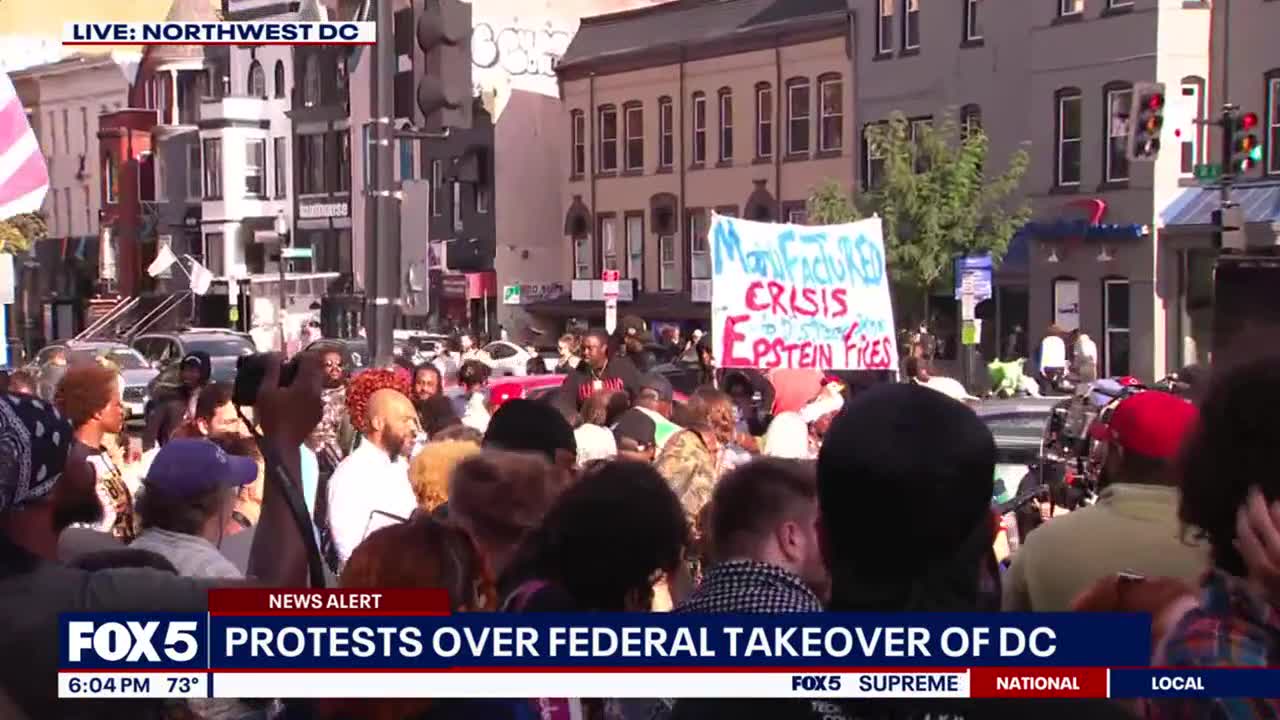President Donald Trump announced plans to direct federal law enforcement intervention in Chicago and Baltimore as protests continue in Washington, D.C. While speaking to reporters on Tuesday, Trump stated, “We’re going in,” but did not specify a timeline for the intervention. This marks a continuation of his administration’s recent actions, which include federalizing the capital police and deploying National Guard troops in Washington earlier this month.
Protests against the Trump administration’s federal involvement have intensified in D.C., with residents voicing their opposition to what they perceive as a federal takeover. Activity is expected to escalate as Trump prepares to patrol with federal law enforcement officers on Thursday night.
The intervention in Chicago and Baltimore comes as Trump emphasizes his commitment to protecting the nation, stating, “I have an obligation to protect this country, and that includes Baltimore.” During the press briefing, he expressed his willingness to proceed with federal intervention in cities predominantly governed by Democrats.
In response to these plans, Illinois Governor JB Pritzker has publicly opposed the federal intervention in Chicago. Despite this, Trump asserted, “Now, we’re going to do it anyway. We have the right to do it.” This statement highlights the ongoing tension between state and federal authorities regarding law enforcement strategies.
The implications of federal intervention raise significant questions about governance and civil liberties. Critics argue that such actions may exacerbate tensions in cities already grappling with unrest. Meanwhile, supporters contend that federal involvement is necessary to restore order.
According to the Associated Press, the administration’s strategy appears targeted at cities that have experienced substantial civil unrest. With a history of confrontations between local authorities and federal law enforcement, the situation remains fluid as the Trump administration prepares for further actions in these urban areas.
As the situation unfolds, the impact of federal intervention on local communities will be closely monitored. The administration’s approach could set a precedent for how future administrations engage with cities facing civil disorder.
